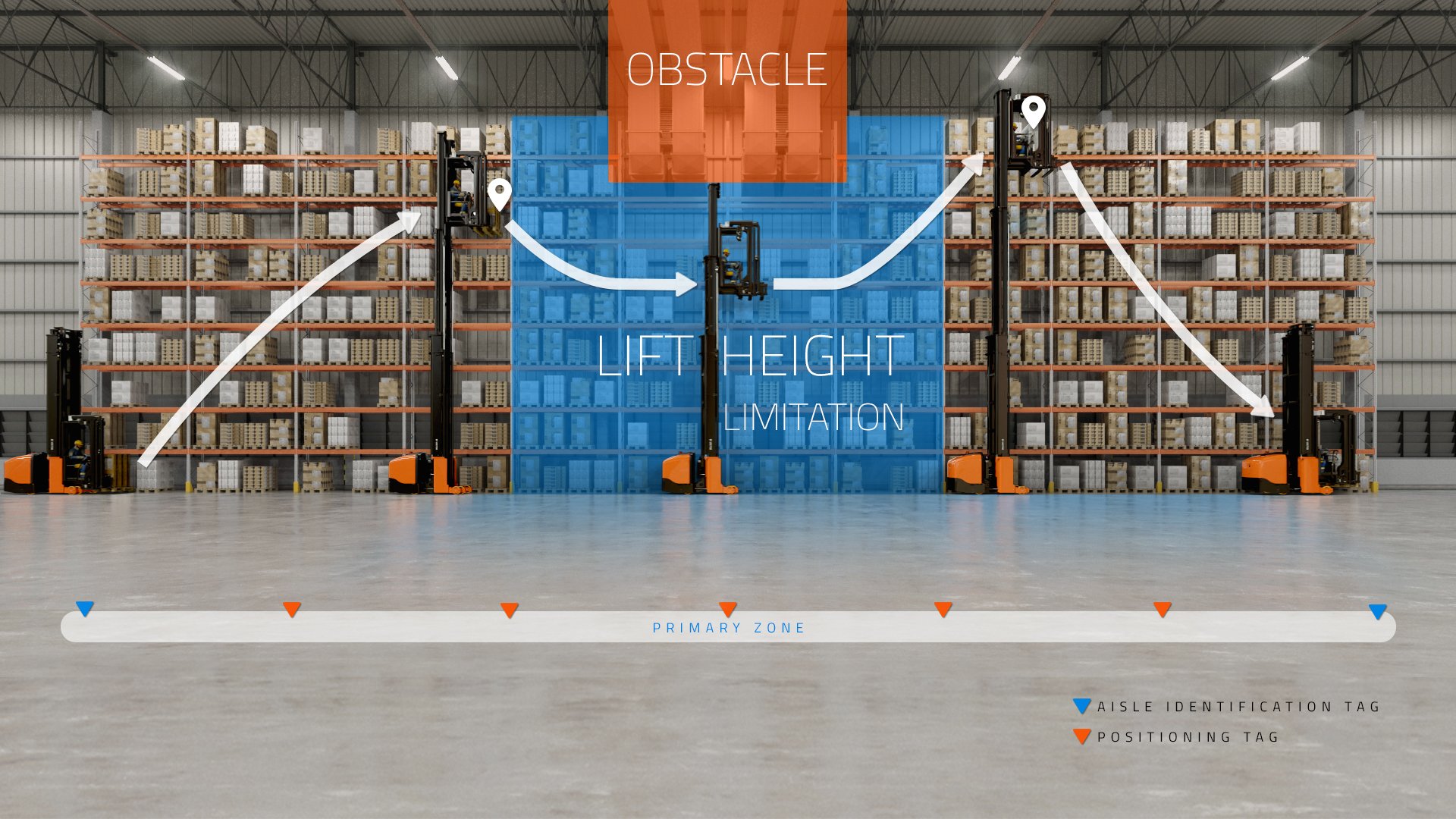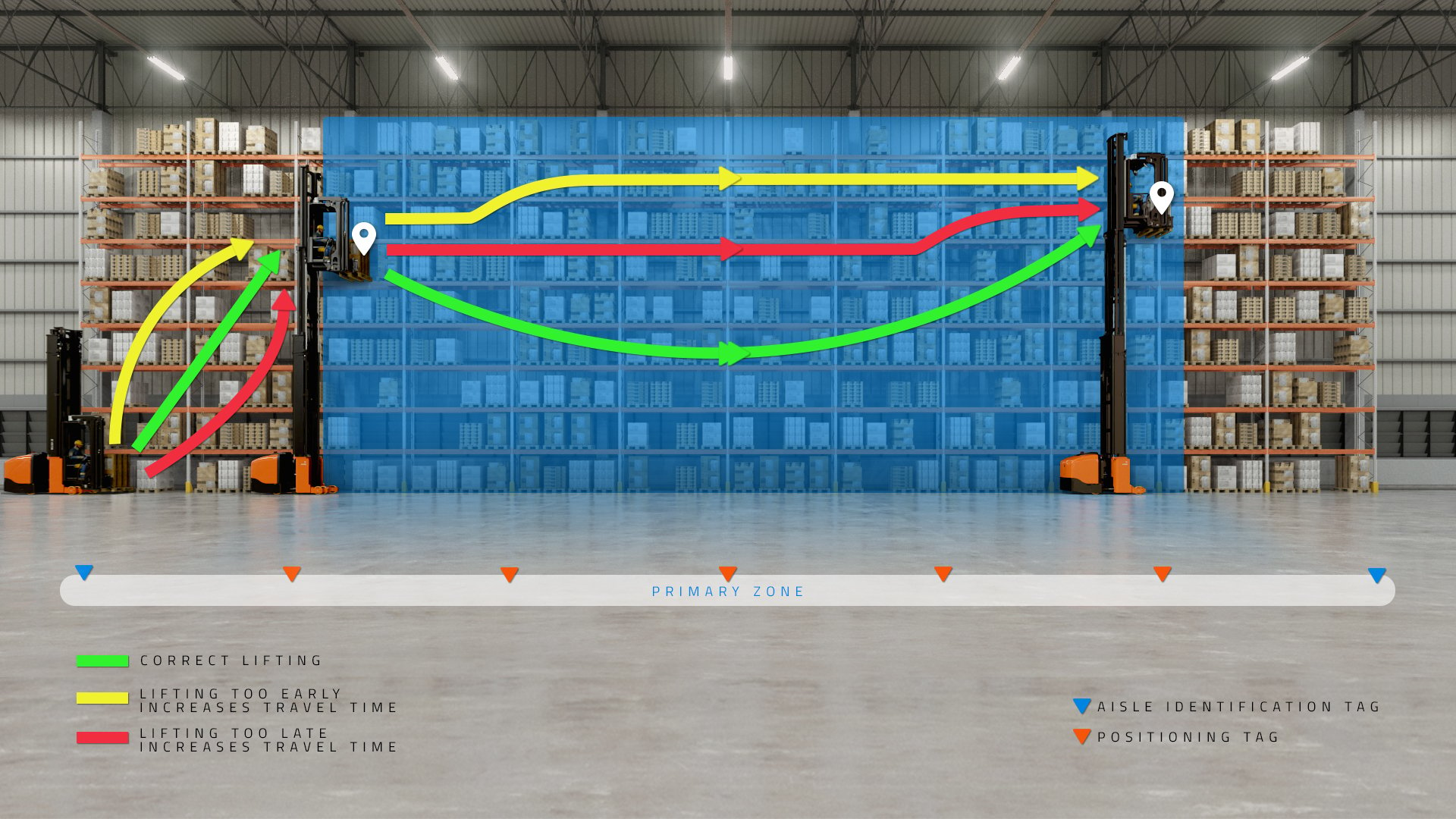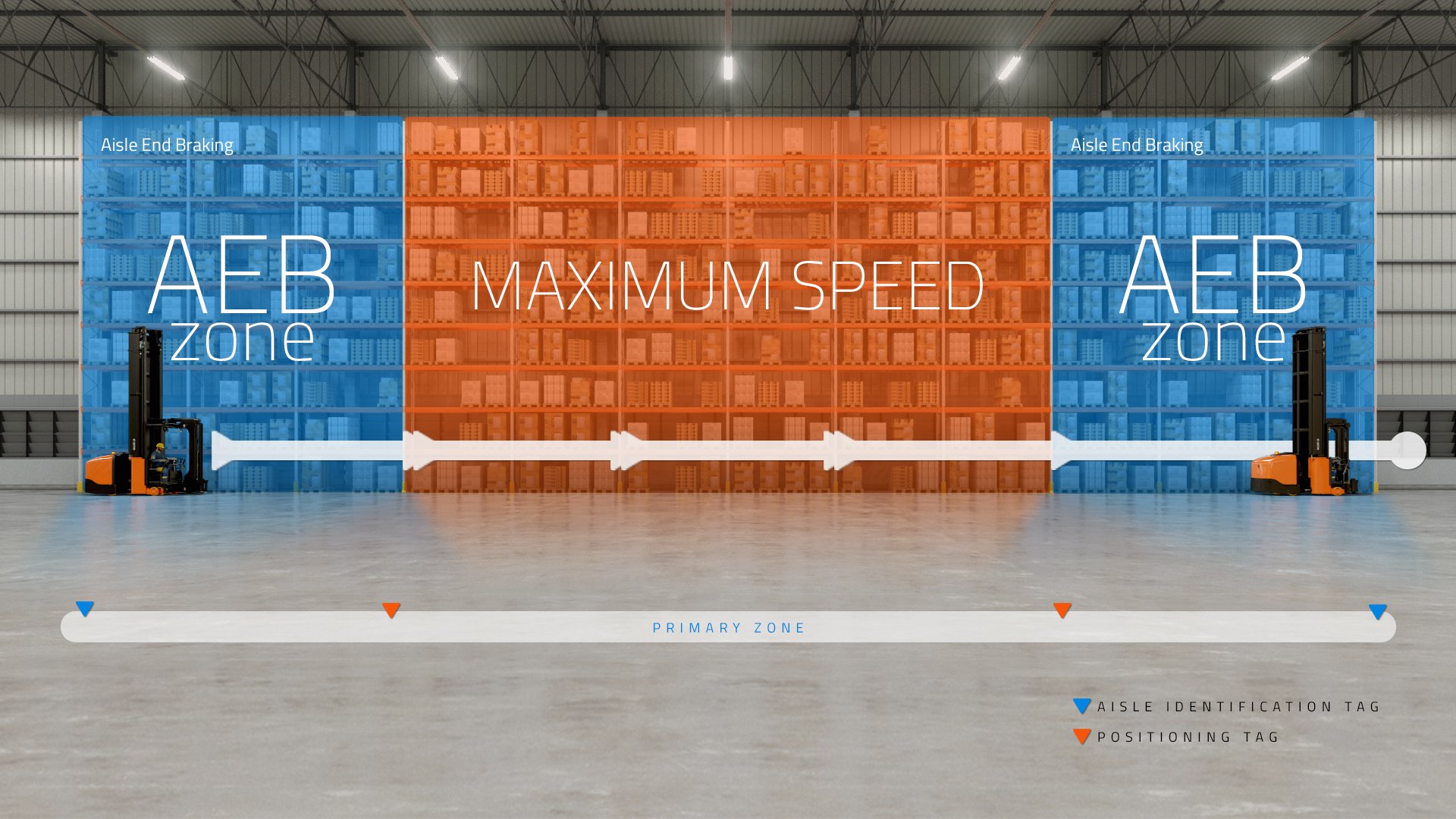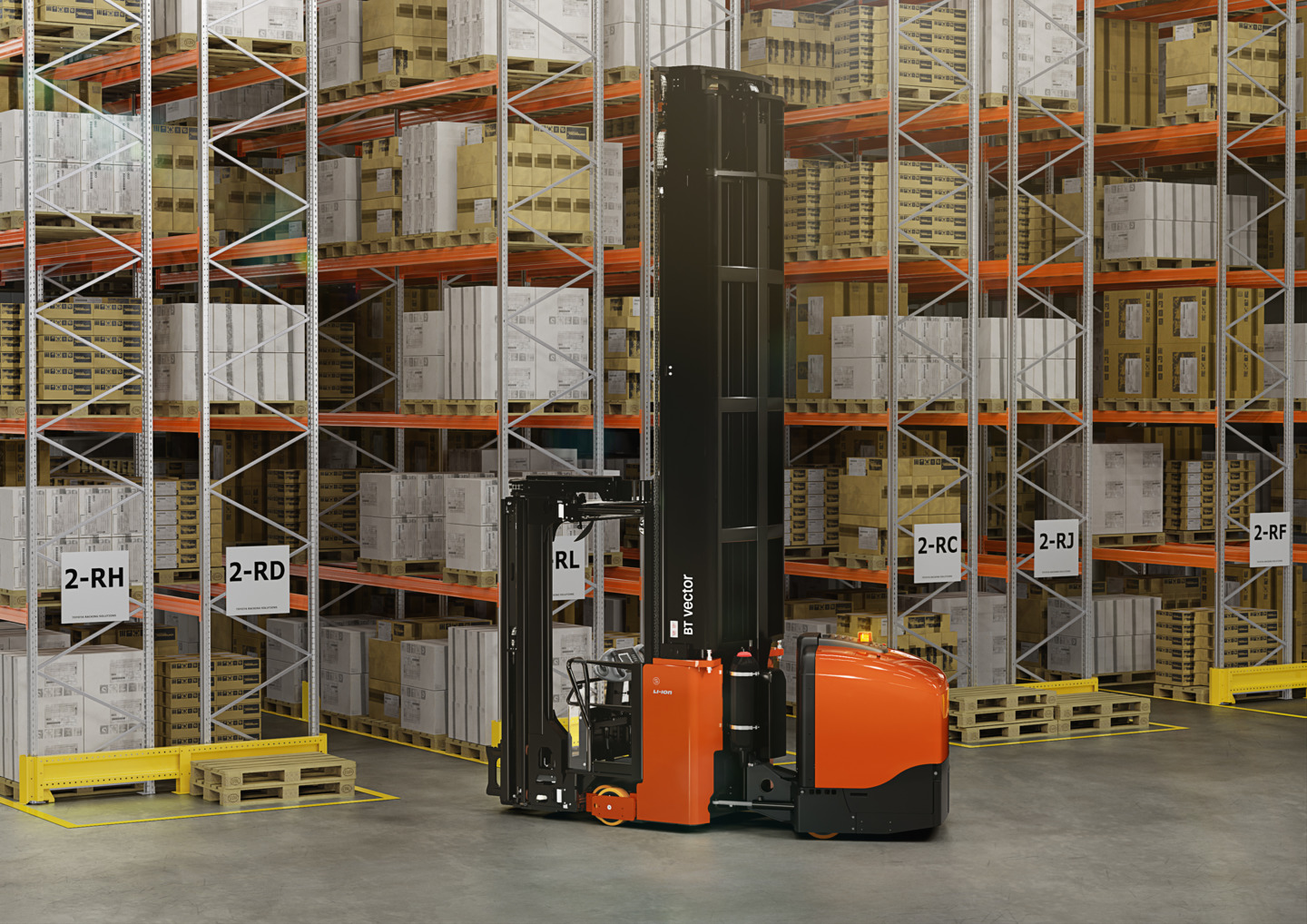When working at up to 17 metres in height, driving and steering can become tricky with such a small space to move between aisles. To minimise risk, very-narrow-aisle (VNA) trucks from Toyota can be equipped with a range of safety options that also make the driver’s task easier.
Driver aid systems for very narrow aisle trucks
In the automotive industry it has become a given that new cars offer driver support or safety features. Similarly, our Personal Protection System (PPS) increases safety inside the very narrow aisle. Especially in elevated mode the driver can’t see what’s happening below him/her, for example when someone accidentally walks in the aisle. The scanner in front of the very narrow aisle hand pallet truck creates 2 zones", a warning zone and a stop zone, to help the driver avoid possible collisions in the aisle. Hereby PPS reduces the risk of human errors.
Zoning
Radio frequency identification (RFID) tags spread across the entire aisle can communicate with sensors on the warehouse truck. This way, the truck knows which position it’s at in the aisle, and which obstacles to avoid (such as a lower ceiling, sprinklers, ventilation shaft or bad floor condition). To ensure safe movement through the aisle, speed, height or fork movement can be restricted on certain dates and time slots. The limitations are also easy to add or to remove. Each aisle can be adapted separately and as often as required based on your current needs.

Navigating your very narrow aisle truck
The 3D layout of your warehouse (in height, depth, and width) with all pallet locations can be programmed into our very narrow aisle trucks. This way you can instruct the truck to go to certain pallet locations, and the truck will automatically calculate the optimal route from point A to point B. The truck will approach the right pallet location, and adapt its driving speed depending on the lift height: it will go faster at a low height and slower at a higher height. Resulting in a leaner and more productive operation, by reducing cycle times.
The system also continuously checks if the truck is on the right route. It will stop driving into wrong aisles, stop retrieving/stacking pallets from wrong locations, and instead indicate the correct side for picking, among other tasks. It basically takes away the driver’s guesswork, resulting in more efficient pallet racking handling.

Navigation with Warehouse Management System integration
Here the same principle as the one above is applied, but in this case the pallet locations are programmed automatically in the truck thanks to the connection with your warehouse management system. This way the locations don’t have to be programmed manually into the truck, for quicker installation.
Aisle indication
As the truck is locked with guide wheels or on wire guidance in the floor, it receives a signal from indicators (such as magnets, RFID, reflectors or others) that it is approaching the aisle and needs to switch off manual steering. On top of this, automatic braking can also be enabled when the truck is approaching the end of an aisle.

RFID technology & very narrow aisle trucks
The features above can all function with the help of RFID technology. RFID technology can help identify positions or navigate trucks. RFID tags can be placed in the aisles and connect with a sensor in the truck, offering various possible combinations.
Benefits of radio frequency identification tags are:
- they’re easy to install
- they're small
- they don’t hold any batteries
- they require no maintenance
A tag in the warehouse is activated when the sensor on the truck makes contact and hereby communicates the truck’s location in the warehouse.


